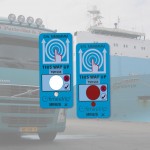Timestrip® Helps End Consumer Confusion about Food Safety
Key in Monitoring Safety of Food Products, Cosmetics, Medicines
Nestlé Integrates Timestrip into European Product Lines
Should we throw out that spaghetti sauce? Is that baby food still safe? How many days ago did we buy that steak? These are questions concerned American consumers are asking about food storage, nutritional value and spoilage.
“Knowing how long food has been opened, even if refrigerated, is key in determining food freshness and safety,” says Reuben Isbitsky, Joint CEO of Timestrip. “Food loses nutritional value over time, and processed and organic food can lose integrity and develop dangerous bacteria even if you refrigerate after opening.”
The U.S. Department of Health and Human Services estimates 76 million illnesses, 325,000 hospitalizations, and 5,000 deaths are attributable to food-borne illness in the United States each year.
Many of these illnesses can be due to confusion about food freshness and safety in the “period after opening” (PAO), the time in which a food product should be consumed before it loses its full nutritional value and spoilage begins.
Healthy shelf life of food products – from baby food to pizza – varies greatly, and even non-food products, such as mascara, have a relatively short shelf life. Obviously, part of the consumer’s confusion stems from an inability to remember how long ago many products were opened.
Timestrips® – time- and temperature-sensitive “smart labels” recently introduced into the U.S. market – visually monitor elapsed time from minutes to over a year on any product. They are becoming popular among European consumers to help track time after opening of foods, cosmetics and medicines/antibiotics since they adhere to any package – whether at room temperature or frozen – for clear, visual monitoring of remaining product shelf life.
They are “smart” labels in that they are also temperature sensitive, a factor which adds a layer of safety in helping to protect consumers that other products, such as digital counters, cannot provide.
In Europe Nestlé integrated Timestrip labels in its Maggi product line and the German Food Standards Agency has stated that Timestrips® make an important contribution to food safety as the “easily readable color strip” on the label makes it easy to determine the freshness of a product.





